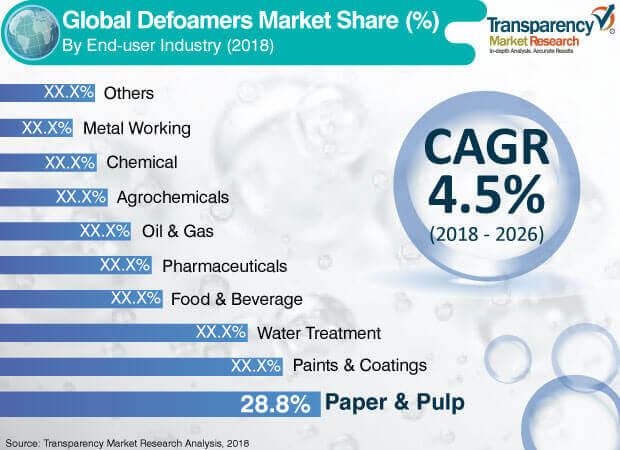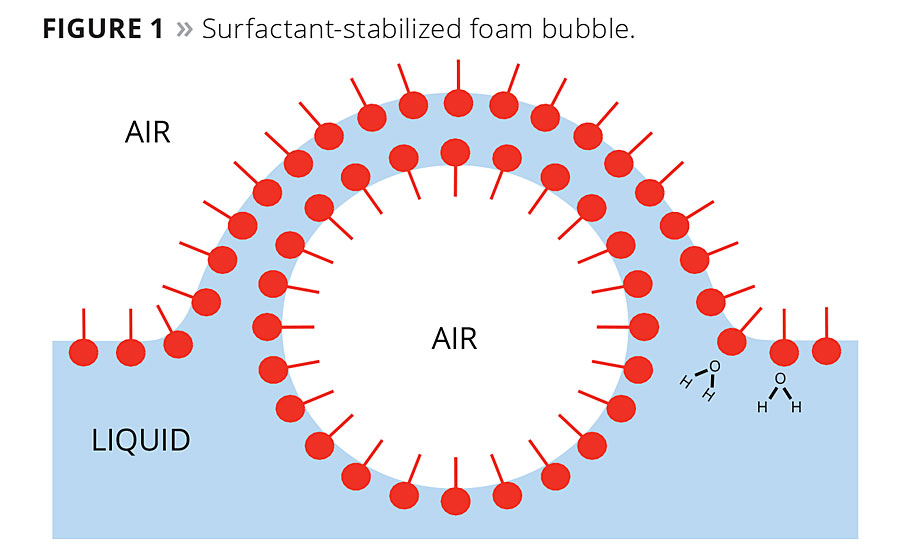Discover the Top Advantages of Utilizing Defoamers in Industrial Processes
The utilization of defoamers in commercial procedures provides an array of engaging benefits that can enhance functional efficiency and item quality. By effectively controlling foam manufacturing, these agents not just enhance material flow but additionally contribute to considerable price reductions and improved sustainability. The effects of adopting defoamers might be a lot more profound than at first perceived.
Boosted Refine Effectiveness
Optimizing industrial procedures typically includes addressing frothing problems, which can prevent functional performance. Foam formation can hinder the appropriate functioning of equipment, lower the efficient application of resources, and make complex the tracking of essential criteria. By applying defoamers, markets can efficiently alleviate these problems, resulting in streamlined procedures and enhanced efficiency.
Defoamers work by destabilizing the foam framework, permitting quick collapse and substantial decrease in foam volume. This activity not just improves the flow of products with equipment, such as reactors, mixers, and pipes, yet also lessens interruptions triggered by foam overflow. Tools downtime is decreased, permitting for a much more continual and effective production procedure.
Additionally, using defoamers can lead to lowered energy intake. With less foam to manage, compressors and pumps can operate more effectively, resulting in lower functional costs and a general improvement in process throughput. Inevitably, the strategic usage of defoamers not just addresses immediate lathering challenges however additionally contributes to a more effective commercial community, cultivating a competitive advantage in a requiring market.
Improved Item Quality
The combination of defoamers in industrial procedures plays a vital function in boosting item quality. By successfully regulating foam development, defoamers contribute to the consistency and harmony of end products. Excessive foam can result in aeration, which adversely influences the appearance and security of formulations, particularly in markets such as food and layers, beverages, and drugs.

Furthermore, defoamers facilitate far better mixing and diffusion of components, leading to homogeneity in formulas. This is vital in applications where accurate active ingredient ratios are critical for efficiency and safety. In addition, the elimination of foam can lower the danger of contamination throughout manufacturing, further securing product stability.
Inevitably, by enhancing item high quality, defoamers not just enhance consumer complete satisfaction yet also enhance brand track record. Their role in preserving high-grade requirements emphasizes their importance in modern commercial processes.
Cost Decrease Advantages
Executing defoamers in commercial procedures can lead to considerable price decrease advantages. By effectively managing foam development, defoamers decrease item loss during manufacturing, thus enhancing product usage. This decrease in waste converts straight into lower basic material expenses, improving total functional performance.
Moreover, using defoamers can decrease energy consumption. Extreme foam can impede devices efficiency, causing raised power requirements to keep production levels. By mitigating foam, defoamers help with smoother operations, allowing machinery to run more efficiently and reducing energy expenses.

Furthermore, defoamers can shorten processing times. Foam can create added obstacles that extend production cycles. By utilizing defoamers, sectors can simplify their procedures, causing faster turnaround times and improved throughput. This performance not just speeds up production yet likewise enables companies to fulfill market needs much more swiftly.

Environmental Influence Reduction
In industrial processes, using defoamers plays an important duty in mitigating ecological impacts connected with foam generation. Foam can cause significant functional inadequacies, resulting in enhanced discharges and waste generation. By successfully managing foam, defoamers help preserve process effectiveness, consequently lowering the total ecological impact of procedures.
In addition, too much foam can overflow control systems, bring about spills that may contaminate soil and water resources. Defoamers help minimize this risk by ensuring that foaming does not exceed prescribed restrictions, advertising conformity with environmental policies. This proactive approach not just safeguards ecosystems yet additionally improves the sustainability of industrial practices.
Additionally, the usage of defoamers can decrease energy consumption in various procedures. defoamers. Minimizing foam formation visit decreases the need for added energy-intensive actions, such as raised anxiety or pumping, which may or else be essential to handle foam. As a result, the adoption of defoamers straightens with wider sustainability goals by advertising power efficiency while minimizing the carbon impact of industrial tasks.
Inevitably, integrating defoamers into commercial operations is a tactical action that supports ecological stewardship and accountable source administration.
Versatility Throughout Industries
Throughout different click here for more info industries, defoamers show remarkable convenience, adapting to the certain needs of varied applications. In the food and beverage market, for example, defoamers are critical to maintaining product quality by stopping foam development during handling, which can influence texture and taste. In the pharmaceutical market, defoamers make certain the stability of formulas, boosting item efficacy and consistency.
In the chemical manufacturing world, defoamers promote smoother operations by lessening foam in response vessels, hence improving yield and minimizing downtime. The paper and pulp sector depends on defoamers to enhance the effectiveness of pulp handling and paper manufacturing, guaranteeing optimum item integrity. Additionally, in wastewater treatment facilities, defoamers play a crucial function in regulating foam throughout oygenation procedures, bring about improved therapy outcomes.
The flexibility of defoamers prolongs to the oil and gas market, where they help in handling foam in boring liquids and manufacturing procedures. By tailoring formulas to satisfy particular industry requirements, defoamers work as essential tools that enhance operational efficiency, item top quality, and total procedure efficiency across a wide variety of industries. Their adaptability underscores their value in modern-day commercial applications.
Final Thought
In conclusion, the application of defoamers in industrial processes offers countless advantages, including boosted efficiency, improved product top quality, substantial cost reductions, and favorable environmental impacts. The combination of defoamers stands for a critical approach to dealing with difficulties linked with foam monitoring in various manufacturing environments.
Eventually, the calculated usage of defoamers not just addresses immediate foaming challenges however likewise contributes to a much more effective commercial ecological community, cultivating an affordable benefit in a requiring market.
In industrial processes, the use of defoamers plays an important function in mitigating ecological effects connected with foam generation. By successfully managing foam, defoamers assist preserve process effectiveness, consequently minimizing the general ecological impact of procedures.
In addition, in wastewater therapy centers, defoamers play a crucial function in managing foam during aeration procedures, leading to better therapy results.

Comments on “Why Defoamers Are Essential in Water Treatment and Waste Management”